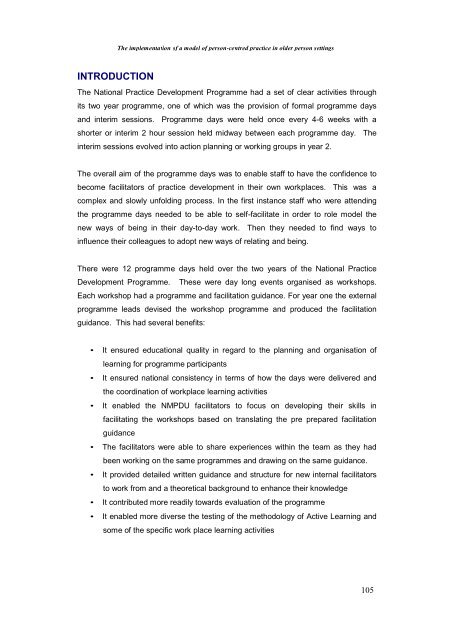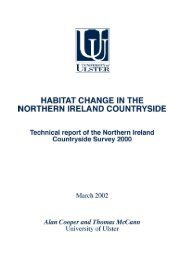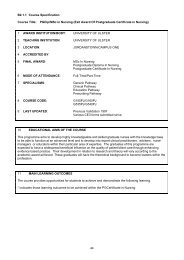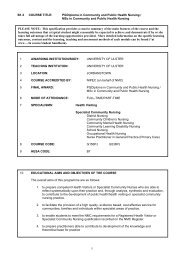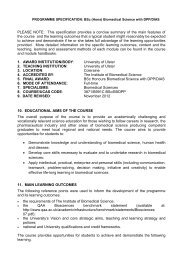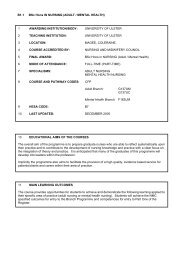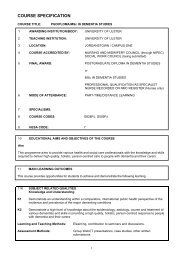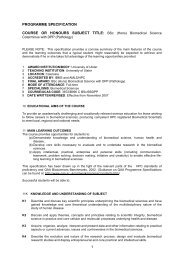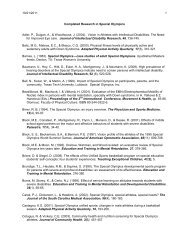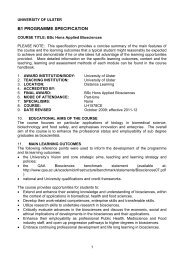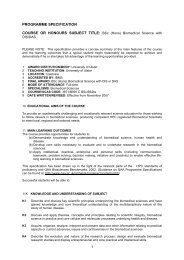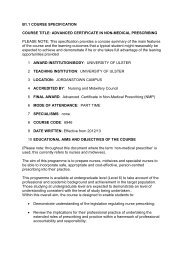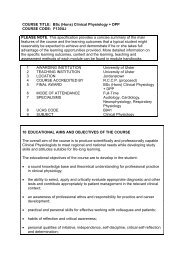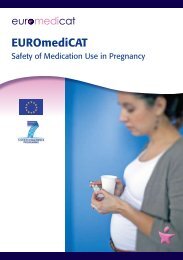The Implementation of a Model of Person-Centred Practice In Older ...
The Implementation of a Model of Person-Centred Practice In Older ...
The Implementation of a Model of Person-Centred Practice In Older ...
Create successful ePaper yourself
Turn your PDF publications into a flip-book with our unique Google optimized e-Paper software.
<strong>The</strong> implementation <strong>of</strong> a model <strong>of</strong> person-centred practice in older person settings<br />
INTRODUCTION<br />
<strong>The</strong> National <strong>Practice</strong> Development Programme had a set <strong>of</strong> clear activities through<br />
its two year programme, one <strong>of</strong> which was the provision <strong>of</strong> formal programme days<br />
and interim sessions. Programme days were held once every 4-6 weeks with a<br />
shorter or interim 2 hour session held midway between each programme day. <strong>The</strong><br />
interim sessions evolved into action planning or working groups in year 2.<br />
<strong>The</strong> overall aim <strong>of</strong> the programme days was to enable staff to have the confidence to<br />
become facilitators <strong>of</strong> practice development in their own workplaces. This was a<br />
complex and slowly unfolding process. <strong>In</strong> the first instance staff who were attending<br />
the programme days needed to be able to self-facilitate in order to role model the<br />
new ways <strong>of</strong> being in their day-to-day work. <strong>The</strong>n they needed to find ways to<br />
influence their colleagues to adopt new ways <strong>of</strong> relating and being.<br />
<strong>The</strong>re were 12 programme days held over the two years <strong>of</strong> the National <strong>Practice</strong><br />
Development Programme. <strong>The</strong>se were day long events organised as workshops.<br />
Each workshop had a programme and facilitation guidance. For year one the external<br />
programme leads devised the workshop programme and produced the facilitation<br />
guidance. This had several benefits:<br />
• It ensured educational quality in regard to the planning and organisation <strong>of</strong><br />
learning for programme participants<br />
• It ensured national consistency in terms <strong>of</strong> how the days were delivered and<br />
the coordination <strong>of</strong> workplace learning activities<br />
• It enabled the NMPDU facilitators to focus on developing their skills in<br />
facilitating the workshops based on translating the pre prepared facilitation<br />
guidance<br />
• <strong>The</strong> facilitators were able to share experiences within the team as they had<br />
been working on the same programmes and drawing on the same guidance.<br />
• It provided detailed written guidance and structure for new internal facilitators<br />
to work from and a theoretical background to enhance their knowledge<br />
• It contributed more readily towards evaluation <strong>of</strong> the programme<br />
• It enabled more diverse the testing <strong>of</strong> the methodology <strong>of</strong> Active Learning and<br />
some <strong>of</strong> the specific work place learning activities<br />
105


